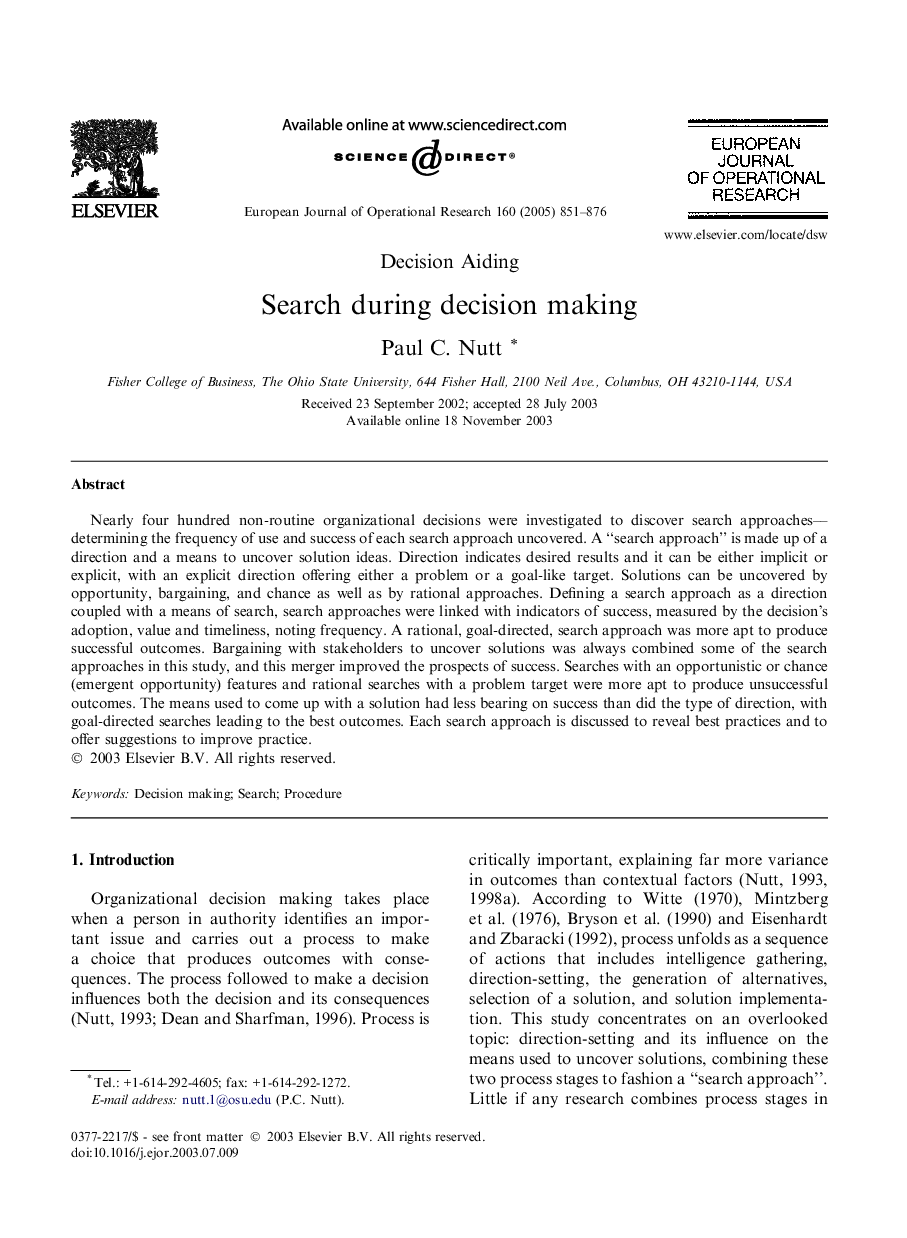| کد مقاله | کد نشریه | سال انتشار | مقاله انگلیسی | نسخه تمام متن |
|---|---|---|---|---|
| 9664070 | 1446255 | 2005 | 26 صفحه PDF | دانلود رایگان |
عنوان انگلیسی مقاله ISI
Search during decision making
دانلود مقاله + سفارش ترجمه
دانلود مقاله ISI انگلیسی
رایگان برای ایرانیان
موضوعات مرتبط
مهندسی و علوم پایه
مهندسی کامپیوتر
علوم کامپیوتر (عمومی)
پیش نمایش صفحه اول مقاله

چکیده انگلیسی
Nearly four hundred non-routine organizational decisions were investigated to discover search approaches--determining the frequency of use and success of each search approach uncovered. A “search approach” is made up of a direction and a means to uncover solution ideas. Direction indicates desired results and it can be either implicit or explicit, with an explicit direction offering either a problem or a goal-like target. Solutions can be uncovered by opportunity, bargaining, and chance as well as by rational approaches. Defining a search approach as a direction coupled with a means of search, search approaches were linked with indicators of success, measured by the decision's adoption, value and timeliness, noting frequency. A rational, goal-directed, search approach was more apt to produce successful outcomes. Bargaining with stakeholders to uncover solutions was always combined some of the search approaches in this study, and this merger improved the prospects of success. Searches with an opportunistic or chance (emergent opportunity) features and rational searches with a problem target were more apt to produce unsuccessful outcomes. The means used to come up with a solution had less bearing on success than did the type of direction, with goal-directed searches leading to the best outcomes. Each search approach is discussed to reveal best practices and to offer suggestions to improve practice.
ناشر
Database: Elsevier - ScienceDirect (ساینس دایرکت)
Journal: European Journal of Operational Research - Volume 160, Issue 3, 1 February 2005, Pages 851-876
Journal: European Journal of Operational Research - Volume 160, Issue 3, 1 February 2005, Pages 851-876
نویسندگان
Paul C. Nutt,